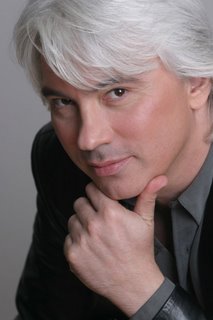 In the middle of a busy Christmas season, it was good to take a break from all the running around that the Yuletide usually brings and attend a performance of Verdi's Don Carlo, an opera which I have always classified as one of the composer's greatest achievements, and also one of my personal favorites. I attended the Saturday matinée broadcast of this work, and if you listened in, I think you will agree with me that it was a very solid performance of this work.
In the middle of a busy Christmas season, it was good to take a break from all the running around that the Yuletide usually brings and attend a performance of Verdi's Don Carlo, an opera which I have always classified as one of the composer's greatest achievements, and also one of my personal favorites. I attended the Saturday matinée broadcast of this work, and if you listened in, I think you will agree with me that it was a very solid performance of this work.When everybody is in top form and the looming microphones of the broadcast that will carry the voices to millions of listeners worldwide have been turned on, all artists try to get to a higher level, and on December 23, they did. Johan Botha, the South African tenor, sang the title role. I have always liked him a lot since I heard his Walther von Stolzing at the MET a few years ago, the last time the house presented Die Meistersinger. Although he does not possess the most mellifluous voice, his instrument is quite secure. And although, there is a noticeable vibrato in his voice, and his acting is, at times, worthy of a silent film, his characterization of the Infante was quite memorable.
Everything that René Pape touches turns to gold these days. He is one of our great basses, and his Philip II was majestic and touching. He turned Philip's great aria "Ella giammai m'amo" into an internal monologue, complete with sotto voce phrasing. I must say that when I heard it at the house, I was a bit disappointed with this approach, but later on, I remembered that in all facets of art less is more, and pretty soon came to the conclusion that it was a valid interpretation of this monologue.
Patricia Racette and Olga Borodina were superb in the roles of Elisabeth and Eboli. I was very pleased with their characterizations and with their ability to handle the difficult Verdian melody line. Likewise, Samuel Ramey offered an imposing Grand Inquisitor. Not too many basses nowadays can muster such threatening power, and although the voice continues to descend into the throes of an ever-widening tremolo, his scene with Pape brought down the house.
Dmitri Hvorostovsky sang with such splendor that he clearly was the most memorable artist on that stage. His voice no longer feels small in the house as it once did, and his audible breathing is no longer an issue as it once was. The role of Posa, perhaps the most noble of all Verdi characters, fits him like a glove, and although I have heard this role sung with greater flexibility and wealth of voice (Robert Merrill was awesome in this role), Dmitri was amazing in his final aria. When he is on, he can be quite a memorable artist, and one of our current best.
Final kudos must go to James Levine who led such an intelligent reading of this massive score that he inspired everyone around. The ovations were simply thrilling and well-deserved.
This Don Carlo was one of the best performances in a year that is proving to be a very memorable one for the new Metropolitan Opera.
No comments:
Post a Comment